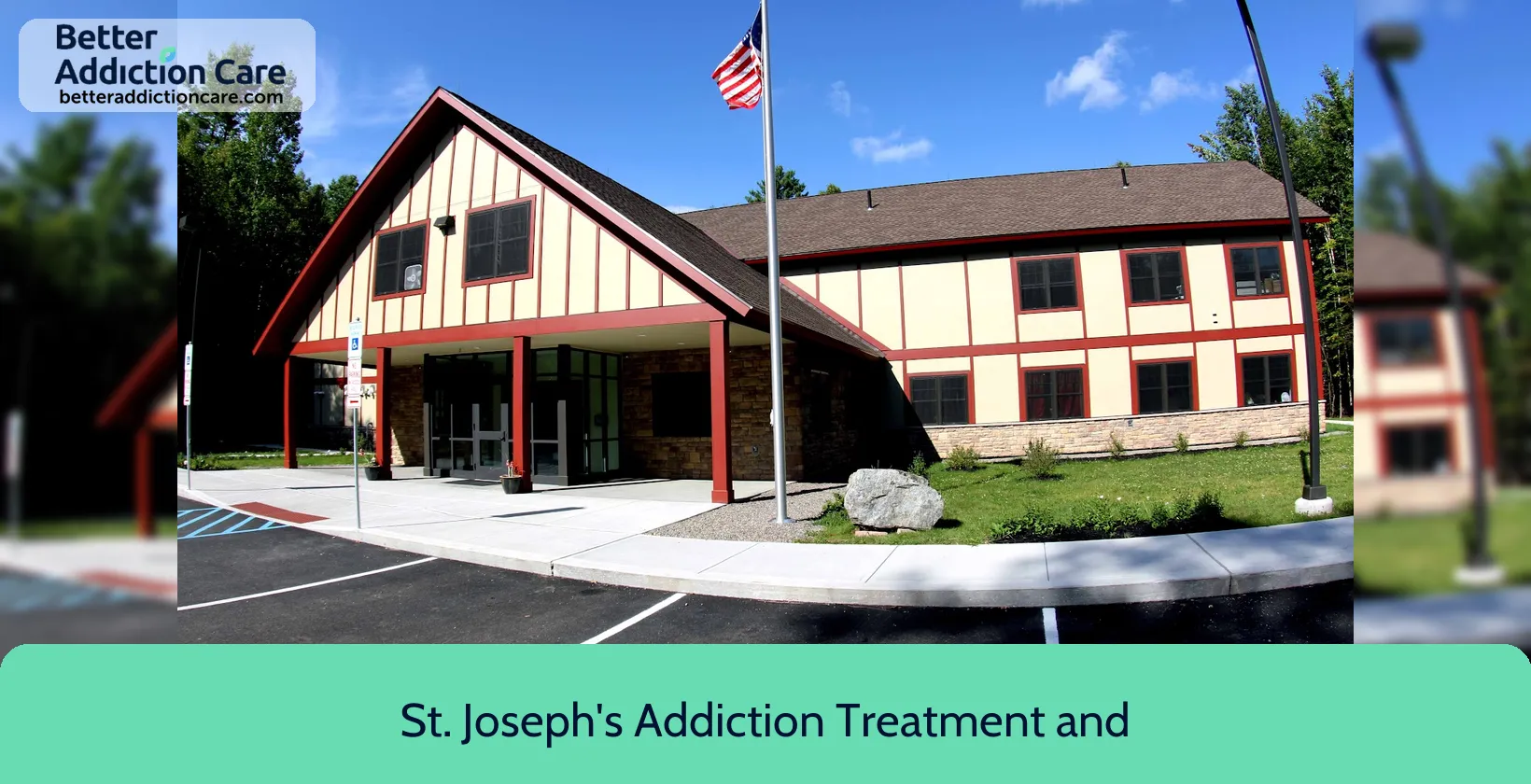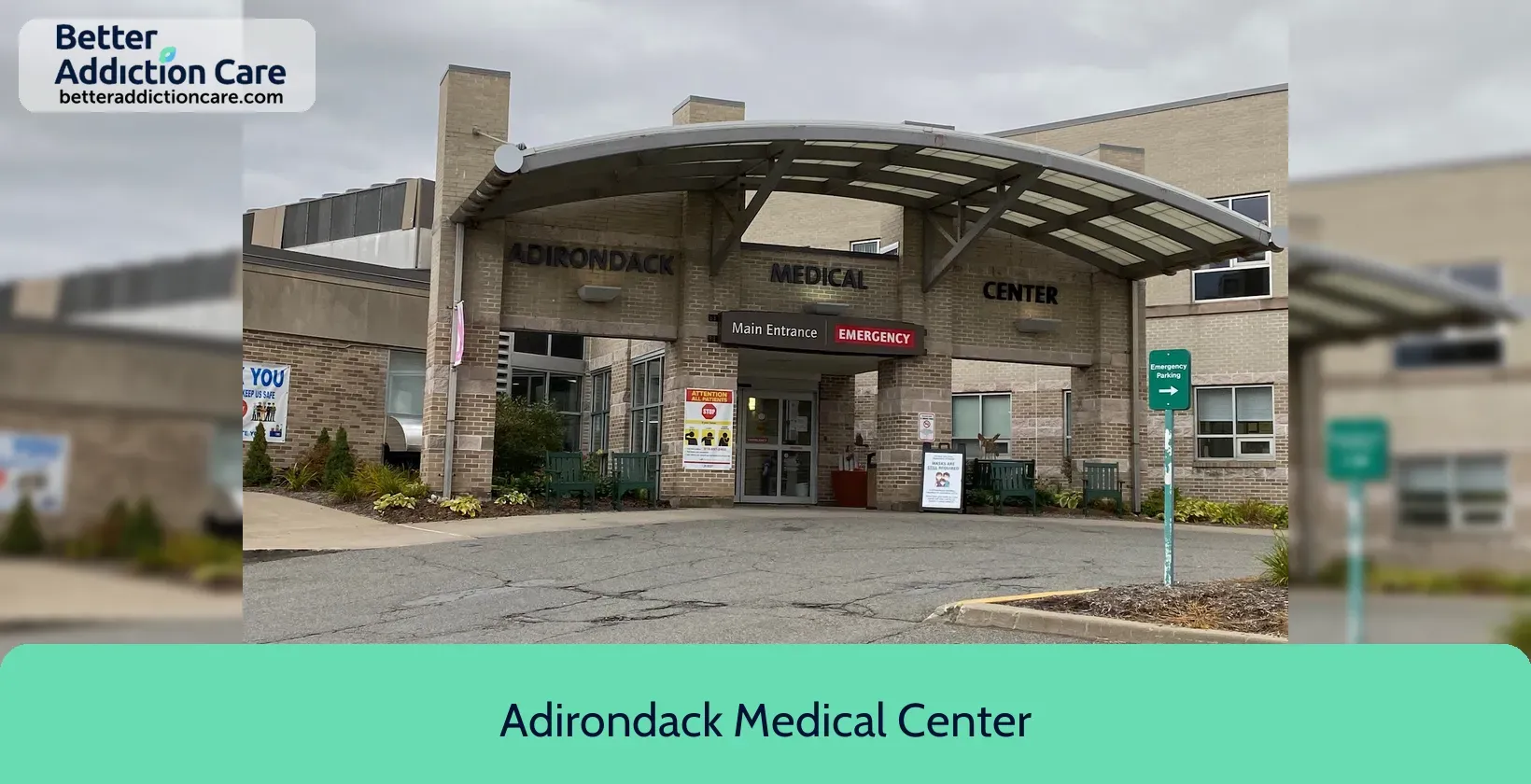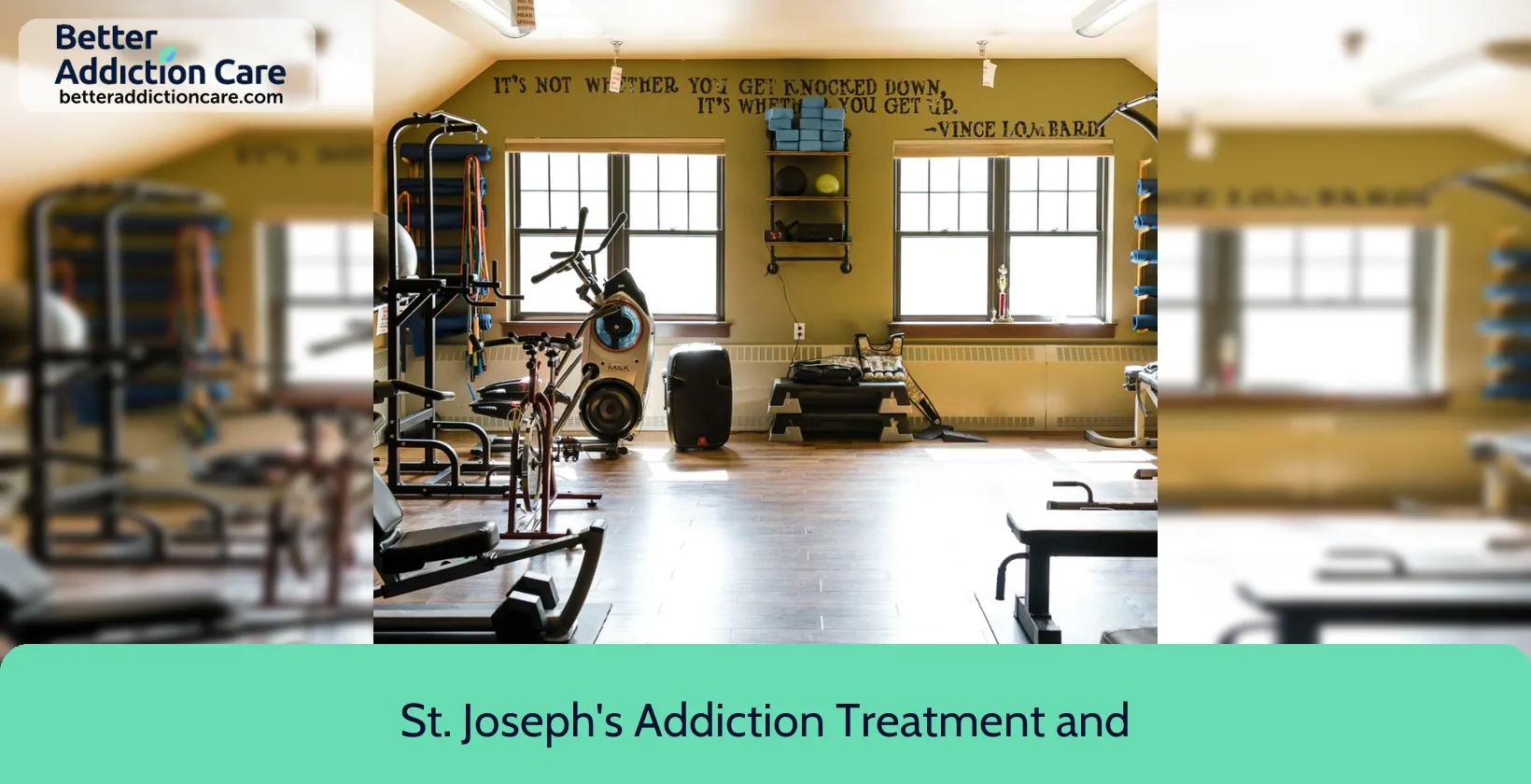St. Joseph's Addiction Treatment and Recovery Centers
Overview
St. Joseph's Addiction Treatment & Recovery Centers is a comprehensive inpatient center for those with drug use problems, and it is situated in the tranquil environment of Saranac Lake, New York. With 67 beds, this coed program offers individualized treatment regimens that accommodate stays of up to 90 days, according upon the specific requirements of each client. St. Joseph's provides care for those with a mix of drug use problems and mental health illnesses, specializing in the treatment of addiction and dual diagnosis.
St. Joseph's therapy strategy is notable for its trauma-focused care, which acknowledges the significant effects trauma may have on a person's psychological, social, biological, and neurological development. Through the implementation of trauma-informed therapy approaches, the center gives clients the ability to take back control of their lives and behaviors. By addressing the underlying causes of addiction, this method seeks to promote a more comprehensive healing process.
A wide variety of treatments are offered by St. Joseph's inpatient program, including self-help groups, medication-assisted therapy (MAT), individual and group counseling, and psychiatric care for those with co-occurring mental health concerns. Clients may also take part in speciality groups, which include women-only programs, mindfulness-based relapse prevention, yoga, fitness courses, and anger management. Additionally, the hospital provides GED instruction, assisting patients in pursuing both academic and personal development as they heal.
Although some guests feel that the facility's accommodations need updating, the center's serene mountain setting and breathtaking vistas provide a tranquil atmosphere that encourages introspection and healing. Incorporating this serene environment into therapy, St. Joseph's encourages patients to make connections with the natural world as a step toward their healing.
St. Joseph's treatment approach promotes substantial personal transformation while deeply respecting each person's intrinsic dignity. It does this by fusing evidence-based behavioral therapies with a spiritual concept of rehabilitation. The facility is dedicated to helping patients at every stage of their road to recovery.
St. Joseph's provides a comprehensive range of services across five counties in New York State, in addition to inpatient treatment. In order to guarantee long-lasting healing for people, these services include specialized care for veterans, an extensive family program, outpatient therapy, an Open Access Center, residential care for adolescents, aftercare assistance, and supportive housing.
At St. Joseph's, the length of a patient's stay is decided by their medical need, guaranteeing that every patient gets the finest treatment possible for their particular circumstances. The facility's dedication to providing high-quality treatment is shown by its CARF accreditation and licensure from the New York State Office of Addiction Services and Supports (OASAS). Additionally, St. Joseph's is accredited by SAMHSA, demonstrating that it meets federal guidelines for mental health and drug misuse treatment.
St. Joseph's Addiction Treatment & Recovery Centers offers a secure, encouraging atmosphere for people to heal, rehabilitate, and start anew as a trauma-informed community.
St. Joseph's Addiction Treatment and Recovery Centers at a Glance
Payment Options
- Cash or self-payment
- Medicaid
- State-financed health insurance plan other than Medicaid
- Private health insurance
- Federal, or any government funding for substance use treatment programs
Assessments
- Screening for tobacco use
- Comprehensive mental health assessment
- Comprehensive substance use assessment
- Interim services for clients
- Screening for mental disorders
Age Groups
- Young adults
- Adults
Ancillary Services
- Case management service
- Early intervention for HIV
- Mental health services
- Social skills development
- Transportation assistance
Highlights About St. Joseph's Addiction Treatment and Recovery Centers
7.51/10
With an overall rating of 7.51/10, this facility has following balanced range of services. Alcohol Rehabilitation: 8.00/10, Drug Rehab and Detox: 7.85/10, Insurance and Payments: 6.27/10, Treatment Options: 7.94/10.-
Alcohol Rehabilitation 8.00
-
Treatment Options 7.94
-
Drug Rehab and Detox 7.85
-
Insurance and Payments 6.27
Accreditations
Drug Enforcement Agency (DEA):
DEA accreditation refers to the process by which a law enforcement agency is recognized by the Drug Enforcement Agency (DEA) as having met specific training, operational, and resource requirements necessary to participate in DEA-led drug enforcement efforts. This accreditation allows the agency to perform DEA-related tasks such as conducting investigations, executing federal search warrants, and participating in joint task forces.
Commission on Accreditation of Rehabilitation Facilities (CARF):

CARF accreditation is a prestigious recognition for organizations in rehabilitation and human services. It signifies that an organization meets rigorous quality standards and is committed to providing top-notch care. Achieving CARF accreditation involves a thorough evaluation process, including on-site surveys, to ensure excellence in programs and services. This accreditation boosts an organization's credibility, assures clients and funders of quality, and promotes ongoing improvement in the field of rehabilitation and human services.
Registration: 38397
SAMHSA certification for opioid treatment program (OTP):
SAMHSA's Opioid Treatment Programs (OTP) Accreditation is a rigorous recognition process, signaling an OTP's commitment to high-quality care for those with opioid use disorders. It assures patients, families, and the community that the program adheres to evidence-based practices, maintains a safe environment, and employs qualified staff. This accreditation represents a commitment to addressing the opioid epidemic and promoting recovery, symbolizing quality and accountability in opioid addiction treatment.
State department of health:

Government agencies issue State Licenses, granting permission to rehabilitation organizations to conduct their business operations lawfully within specific geographic regions. Generally, the particular rehabilitation programs offered by a facility and its physical location dictate the necessary licenses needed for legal operation.
Registration: 35160-50169
Treatment At St. Joseph's Addiction Treatment and Recovery Centers
Treatment Conditions
- Alcoholism
- Mental health treatment
- Substance use treatment
- Co-occurring Disorders
- Opioid Treatement
Care Levels
- Hospital inpatient treatment
- Short-term residential
- Long-term residential
- Aftercare
- Halfway house
Treatment Modalities
- Cognitive behavioral therapy
- Telemedicine/telehealth therapy
- Substance use disorder counseling
- Trauma-related counseling
- Smoking/vaping/tobacco cessation counseling
Ancillary Services
Additional Services
- Pharmacotherapies administered during treatment
- Housing services
- Breathalyzer or blood alcohol testing
Special Programs
- Clients with co-occurring mental and substance use disorders
- Veterans
- Criminal justice (other than DUI/DWI)/Forensic clients
- Pregnant/postpartum women
- Clients who have experienced trauma
Get Help Now
Common Questions About St. Joseph's Addiction Treatment and Recovery Centers
Contact Information
Other Facilities in Saranac Lake

7.55

7.25

6.65
DISCLAIMER: The facility name, logo and brand are the property and registered trademarks of Adirondack Medical Center, and are being used for identification and informational purposes only. Use of these names, logos and brands shall not imply endorsement. BetterAddictionCare.com is not affiliated with or sponsored by Adirondack Medical Center.


